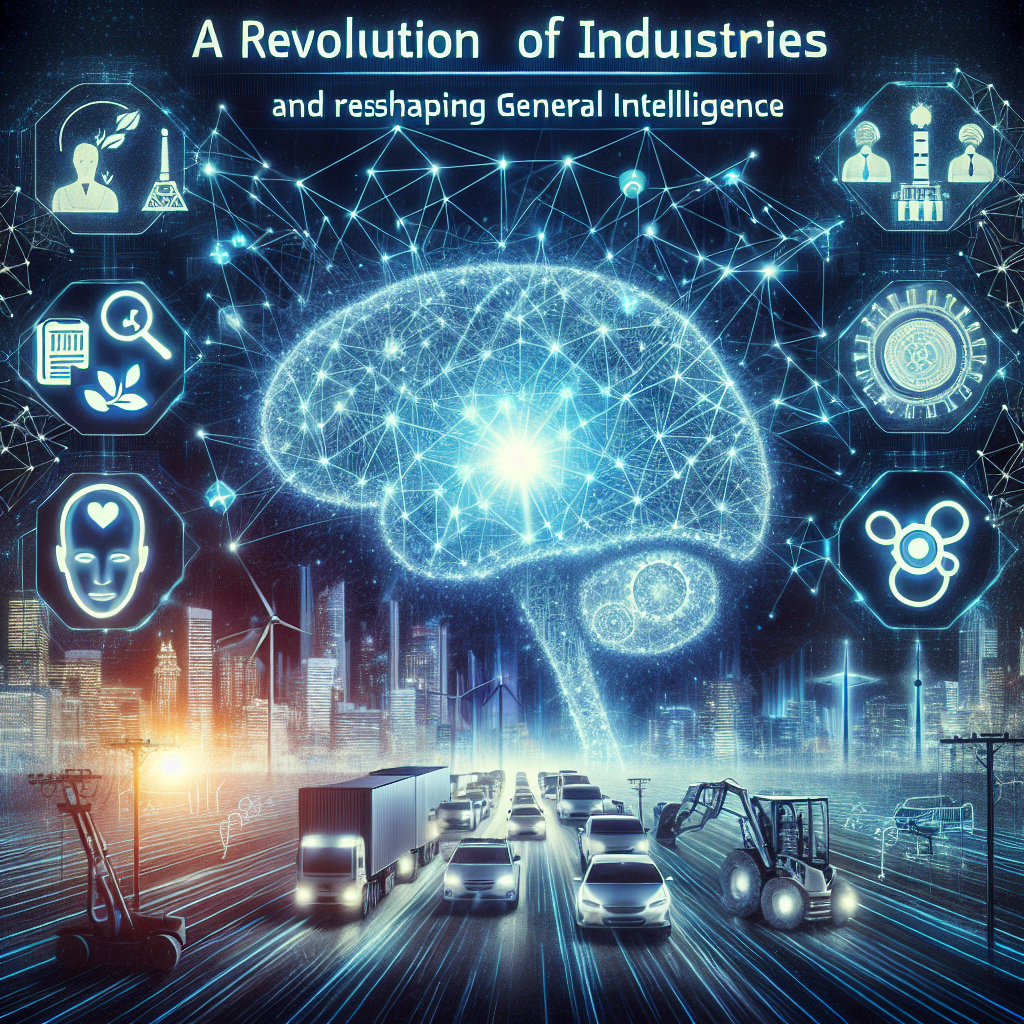Artificial General Intelligence (AGI) has long been a topic of fascination and speculation in the field of artificial intelligence. Unlike narrow AI systems that are designed for specific tasks, AGI aims to replicate human intelligence across a wide range of cognitive functions. This level of intelligence has the potential to revolutionize industries and reshape society in ways we can only begin to imagine.
AGI has the ability to think, learn, and problem-solve in a way that is not limited to specific tasks or domains. This means that AGI systems have the potential to outperform humans in a wide range of cognitive tasks, from complex problem-solving to creative thinking. This level of intelligence has the potential to transform industries by automating tasks that were previously thought to be impossible for machines to perform.
One of the most significant impacts of AGI on industries is its potential to enhance productivity and efficiency. With the ability to automate complex cognitive tasks, AGI systems can streamline processes, reduce errors, and improve the quality of work. This can lead to significant cost savings for businesses, as well as increased output and competitiveness in the market.
Another area where AGI has the potential to revolutionize industries is in the field of healthcare. AGI systems can analyze vast amounts of data from patient records, medical imaging, and genetic information to identify patterns, diagnose diseases, and recommend treatment options. This level of intelligence has the potential to revolutionize the way healthcare is delivered, leading to more personalized and effective treatments for patients.
In the field of finance, AGI has the potential to revolutionize the way investment decisions are made. AGI systems can analyze market data, economic indicators, and company financial reports to make predictions about future trends and opportunities. This level of intelligence has the potential to outperform human traders and analysts, leading to more profitable investment strategies and better risk management.
AGI also has the potential to reshape society in profound ways. As AGI systems become more advanced, they have the potential to take on roles that were previously reserved for humans, such as customer service representatives, teachers, and even creative artists. This has the potential to lead to significant changes in the job market, with some jobs becoming obsolete while new opportunities emerge in the field of AI development and maintenance.
AGI also raises important ethical and societal questions. As AGI systems become more advanced, there is the potential for them to develop their own goals and motivations, leading to concerns about their impact on human society. There are also concerns about the potential for AGI systems to be used for malicious purposes, such as surveillance and warfare.
Despite these challenges, the potential benefits of AGI are vast. From revolutionizing industries to reshaping society, AGI has the potential to unlock new opportunities and improve the quality of life for people around the world. As we continue to develop and deploy AGI systems, it is important to consider the ethical and societal implications of this technology and work towards ensuring that its benefits are shared equitably.
FAQs about AGI:
1. What is the difference between AGI and narrow AI?
AGI is designed to replicate human intelligence across a wide range of cognitive functions, while narrow AI systems are designed for specific tasks or domains. AGI has the potential to outperform humans in a wide range of cognitive tasks, while narrow AI systems are limited to specific tasks.
2. What are some examples of AGI applications?
Some examples of AGI applications include healthcare diagnostics, financial analysis, and autonomous vehicles. AGI has the potential to revolutionize industries by automating complex cognitive tasks and improving productivity and efficiency.
3. What are the ethical implications of AGI?
There are important ethical implications of AGI, including concerns about the potential for AGI systems to develop their own goals and motivations, as well as concerns about their impact on human society. It is important to consider these ethical implications as we continue to develop and deploy AGI systems.
4. How can we ensure that the benefits of AGI are shared equitably?
It is important to work towards ensuring that the benefits of AGI are shared equitably by promoting diversity and inclusion in the field of AI development, as well as by implementing policies and regulations that promote ethical and responsible AI development and deployment.
5. What are some potential risks of AGI?
Some potential risks of AGI include the potential for AGI systems to be used for malicious purposes, such as surveillance and warfare, as well as concerns about the impact of AGI on the job market and human society. It is important to consider these risks as we continue to develop and deploy AGI systems.
In conclusion, AGI has the potential to revolutionize industries and reshape society in profound ways. From enhancing productivity and efficiency to transforming healthcare and finance, AGI has the potential to unlock new opportunities and improve the quality of life for people around the world. As we continue to develop and deploy AGI systems, it is important to consider the ethical and societal implications of this technology and work towards ensuring that its benefits are shared equitably.

